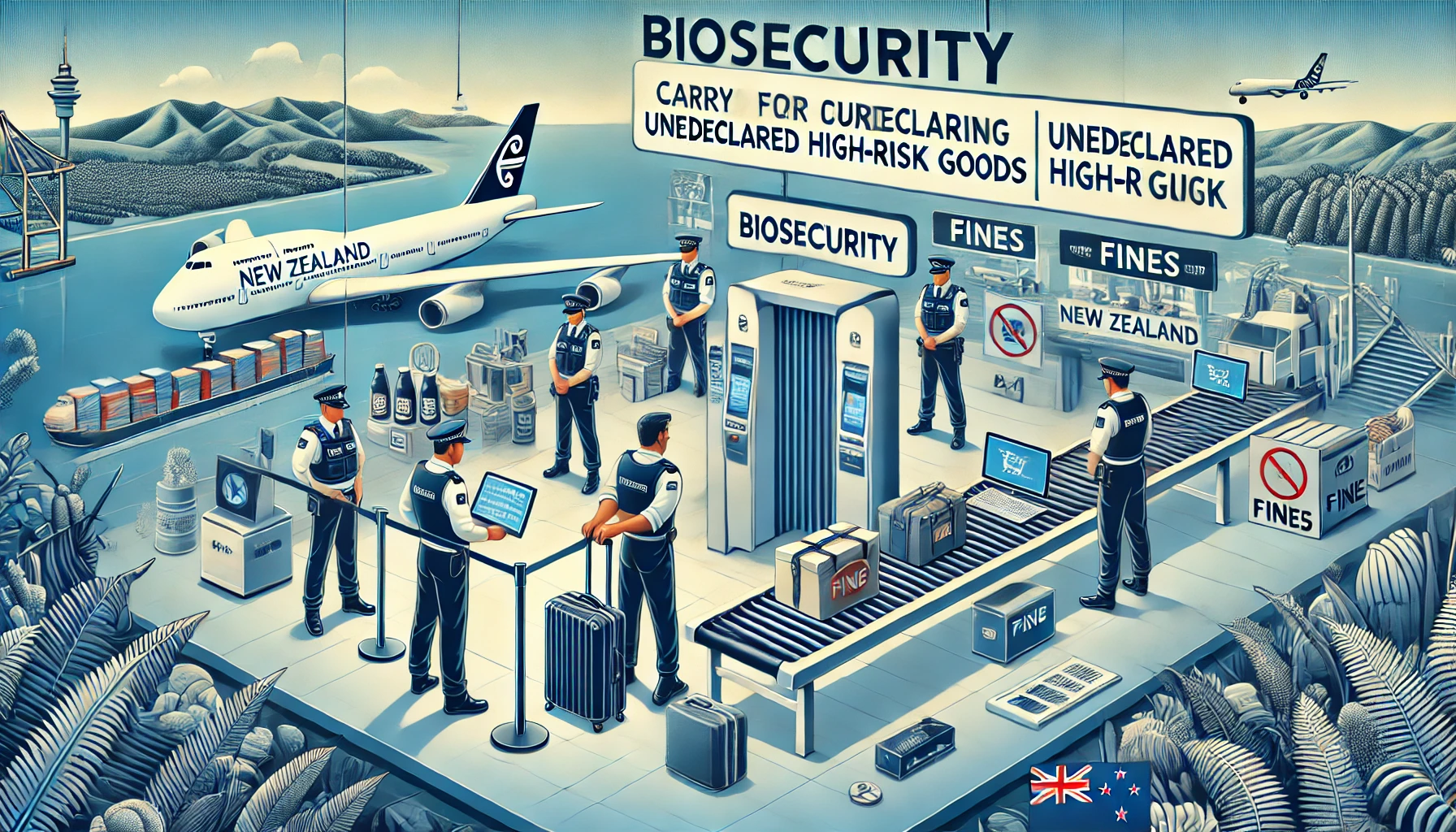Govt Launches AI-Driven Overhaul of Import Health Standards for NZ Trade
The initiative, led by Biosecurity Minister Andrew Hoggard, is designed to streamline processes, reduce delays, and enable faster, safer access to imported goods—while preserving New Zealand’s globally respected biosecurity regime.

- Country:
- New Zealand
In a major stride toward modernizing New Zealand’s trade and biosecurity systems, the Government has launched a transformative programme aimed at overhauling the development of Import Health Standards (IHSs). The initiative, led by Biosecurity Minister Andrew Hoggard, is designed to streamline processes, reduce delays, and enable faster, safer access to imported goods—while preserving New Zealand’s globally respected biosecurity regime.
A System Stuck in the Past
New Zealand’s current IHS framework, which governs how biological imports—such as plants, animals, and food products—are assessed and managed for biosecurity risks, is over 30 years old. With the pace of global trade and innovation accelerating, the existing system is struggling to keep up.
“The world has changed dramatically since the early 1990s,” said Minister Hoggard. “Our existing processes are too slow and too rigid. In today’s fast-moving global economy, we need a system that’s faster, smarter, and more adaptive—but still maintains the highest level of biosecurity protection.”
Accelerating Change Through Smart Technology
At the heart of the Government’s plan is a Regulatory Efficiency Programme that will overhaul how Import Health Standards are written, reviewed, and implemented. A standout feature of the reform is the integration of generative artificial intelligence (AI) to support critical components of the IHS process.
The Ministry for Primary Industries (MPI) has already run proof-of-concept trials using generative AI, which demonstrated that the technology can significantly reduce the time needed for:
-
Pest risk analysis
-
Drafting standards
-
Preparing consultation materials
“This isn’t about replacing our experts—it’s about letting AI handle the heavy lifting of data analysis and documentation so our people can focus on high-value decision-making,” Hoggard explained.
The use of AI tools is expected to cut months off the approval timeline, which would provide immense value to importers, exporters, and primary producers.
Key Pilot: Reforming the Plant Nursery Stock Import System
A flagship pilot for the reform programme is the revamp of the Plant Nursery Stock import system—a process critical to New Zealand’s agriculture, horticulture, and forestry sectors. The MPI is working closely with importers, plant breeders, and growers to co-design a more efficient system that supports safe access to new plant materials and genetics.
The stakes are high: plant-based industries in New Zealand rely on access to diverse and resilient crop varieties to maintain competitiveness, adapt to changing climates, improve yields, and meet consumer preferences.
“This is about helping New Zealand farmers and growers stay on the cutting edge,” Hoggard said. “Faster, more predictable access to new plant material can drive innovation in breeding, pest resistance, and sustainability.”
Supporting a $59.9 Billion Sector
New Zealand’s primary sector exports are valued at $59.9 billion, making it a cornerstone of the national economy. Efficient and secure import systems underpin the long-term health and resilience of this sector.
The revamped IHS process will offer:
-
Faster approvals for a wider range of biologically sensitive goods
-
Clearer guidance and more user-friendly standards for industry participants
-
Reduced regulatory bottlenecks, unlocking productivity across supply chains
-
Continued vigilance in protecting native biodiversity and agricultural assets
A Future-Ready Biosecurity System
The reform programme aligns with the Government’s broader goals of cutting red tape, promoting innovation, and future-proofing New Zealand’s regulatory infrastructure.
Once fully delivered—targeted for completion over the coming years—the programme will ensure that New Zealand remains both an attractive destination for global trade and a leader in biosecurity.
“We’re building a system that can keep up with the speed of global innovation and trade,” said Minister Hoggard. “Our aim is simple: support growth, enable innovation, and strengthen resilience—while ensuring our environment and economy remain protected.”
Next Steps and Industry Involvement
The MPI will continue to expand consultation with importers, scientific institutions, and biosecurity partners throughout 2024 and 2025. Industry engagement will be central to shaping the final reform model, ensuring that the new IHS system works in practice as well as on paper.
“This is a co-design process,” Hoggard emphasized. “We’re not just changing regulations—we’re transforming how we partner with industry to meet the challenges of tomorrow.”
ALSO READ
Piyush Goyal Charts Global Trade Roadmap with Indian Missions Worldwide
Canada Expands Global Trade Horizons Amid U.S. Shift
G20 Finance Chiefs Emphasize Central Bank Independence and WTO's Role in Global Trade
Canada Seeks Global Trade Expansion
Piyush Goyal Champions Global Trade at ASSOCHAM Event










